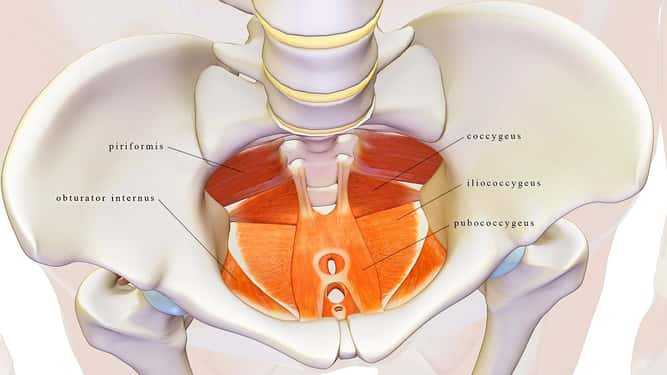The majority of people living with multiple sclerosis (MS) — a chronic autoimmune disease affecting the central nervous system — say that fatigue is their most prominent symptom, according to the National Multiple Sclerosis Society (NMSS).
Research published in March 2021 in Multiple Sclerosis Journal confirms this finding: In a Norwegian study of nearly 1600 people with MS, researchers found that 81 percent of respondents experienced fatigue.
“Other MS symptoms may come and go, but fatigue seems to be a constant, no matter what stage of MS they’re in,” says neurologist Jeffrey Cohen, MD, director of the Cleveland Clinic’s Mellen Center for Multiple Sclerosis Treatment and Research in Ohio.
For many people living with MS, however, the word “fatigue” doesn’t quite capture the feeling of being completely depleted.
“I’ve always wished there was another to term to describe MS ‘fatigue,’” says Michael Wentink, a 42-year-old writer with MS who lives in San Antonio, Texas, with his wife and two children. “When people hear fatigue as a symptom of MS, they often think, ‘Oh, sure, I’m tired, too,’ but it’s not at all the same feeling,” he says.
“I remember what it was like to feel tired or fatigued before I had MS, and this is totally different,” says Wentink.
The kind of fatigue that comes with MS isn’t the kind that comes from exertion, Wentink explains. “I can wake up from a night of sleep and feel fatigued. After my shower and shaving, sometimes I literally need to go lie down on the bed for a little bit afterward to recover.”
What Causes MS Fatigue?
“There are many reasons someone with MS experiences fatigue,” Dr. Cohen says. “Some are directly related to MS, and some are not.” Top Articles
Top Articles


 READ MORE
READ MORE
 The Keto Diet: Are There Any Benefits for PeopleWith MS? | Everyday Healthhttps://imasdk.googleapis.com/js/core/bridge3.489.0_en.html#goog_1995035749https://imasdk.googleapis.com/js/core/bridge3.489.0_en.html#goog_917488115https://imasdk.googleapis.com/js/core/bridge3.489.0_en.html#goog_1470689788
The Keto Diet: Are There Any Benefits for PeopleWith MS? | Everyday Healthhttps://imasdk.googleapis.com/js/core/bridge3.489.0_en.html#goog_1995035749https://imasdk.googleapis.com/js/core/bridge3.489.0_en.html#goog_917488115https://imasdk.googleapis.com/js/core/bridge3.489.0_en.html#goog_1470689788
Some of the types of fatigue that may affect people with MS are:
- Indirect Fatigue Stress, trouble sleeping due to muscle spasms, side effects from medication, and depression that may go along with a chronic illness like MS can all cause fatigue. “Doctors should also rule out unrelated causes of fatigue, such as anemia or thyroid disease,” Cohen says.
- Neurologic Fatigue “MS symptoms, like tremors, muscle weakness, and muscle spasms, use up a lot of energy and can lead to fatigue,” Cohen says. “Damage that has been sustained over time along nerve pathways can be aggravated by stress, activity, fever, and heat exposure. All of these factors contribute to MS fatigue.”
- Autoimmune Fatigue “Persistent tiredness, or lassitude, is common in many autoimmune diseases and is probably the most common type of MS fatigue,” Cohen says. “It is very similar to the type of fatigue experienced in chronic fatigue syndrome.”
RELATED: The Many Varieties of MS Fatigue
How to Reduce Your MS Fatigue
Is there anything you can do to reduce your fatigue? Experts say yes. Here are some tips for preserving your energy so you can get the most out of each day:
1. Work Closely With Your MS Healthcare Providers
Make and keep regular appointments with your doctor to assess whether your disease is under the best control possible and you’re receiving optimal MS treatment.
“In many cases, when MS is well-controlled, it can help in terms of fatigue levels,” says Devon Conway, MD, a neurologist at Cleveland Clinic’s Mellen Center for Multiple Sclerosis Treatment and Research in Ohio.
2. Get Plenty of Sleep
Practice good sleep hygiene, which includes going to bed and getting up at around the same time every day, suggests Conway. “If you sleep a lot but you still feel fatigued, you should be screened for a potential sleeping disorder,” he says.
Sleep disorders are common among people with MS, but often go untreated, according to a review published in May 2015 in Current Neurology and Neuroscience Reports.
A review published in Current Neurology and Neuroscience Reports in April 2016 echoed these findings — and researchers noted that getting treated for a sleep disorder such as insomnia or restless legs syndrome could help alleviate some of the daytime fatigue that people with MS experience.
3. Avoid Heat Exposure
Getting overheated is a surefire way to increase fatigue, so staying cool is a must. To survive summers in Texas, Wentink does plenty of advance planning.
“When it gets really hot, I know that if I’m going to do an activity, it has to be before the sun rises or after the sun sets,” he says. “If I’m going to one of my kids’ sporting events, I make sure I bring plenty of water.”
Seeking out shade and wearing an ice pack around his neck also help Wentink from getting overheated.
RELATED: Cooling Products for Multiple Sclerosis
4. Take Good Care of Your Overall Health
Maintaining a healthy weight and optimal blood pressure and cholesterol levels, and avoiding type 2 diabetes can all help with MS fatigue, says Dr. Conway.
“A healthy diet and a regular exercise program can really help,” says Cohen. “If you are physically out of shape and overweight, everything you do requires more energy.”
5. Fuel Your Body With High-Quality Foods
There’s no specific diet for MS, but the NMSS recommends following a healthy diet that’s low in fat and high in fiber. According to the NMSS, the foods you choose to eat affect your energy levels.
“Consuming simple carbohydrates such as sugary foods and highly refined foods such as white bread, white rice, or pasta can cause blood sugar levels to spike and crash. The ‘crash’ can exacerbate preexisting fatigue in persons with MS,” explains Barbara Giesser, MD, neurologist and MS specialist at Pacific Neuroscience Institute at Providence Saint John’s Health Center in Santa Monica, California.
How can you avoid this? Regularly choosing high-quality foods can help, says Dr. Giesser. Good options include:
- Protein-packed options, like beans, nuts, and lean animal proteins
- Fiber-rich foods, like oatmeal, brown rice, and high-fiber breakfast cereals
- Fresh fruit and leafy green vegetables
- Fat-free or low-fat yogurt
- Omega-3-containing foods, like salmon and walnuts
RELATED: 7 Ways to Fight MS Fatigue With Your Fork
6. Practice Mindful Movement, Such as Yoga or Tai Chi
Forms of exercise that include some form of meditation and mind-body connection, such as tai chi and yoga, may be helpful for MS fatigue, according to research published in BMC Neurology. And another review published in PLoS One in February 2017 found that tai chi may benefit quality of life among people with MS, but more research is needed to confirm this.
“Yoga can be beneficial, as it incorporates mindfulness, stretching, and low-impact exercise,” says Conway. “There haven’t been a lot of studies about this, but in my personal experience, it can help,” he says.
7. Take Breaks and Pace Yourself
Pacing yourself and taking breaks during the day can help you stay healthy, says Wentink.
“When I’m drained and continue to push, I think I’m putting myself at risk for getting sick,” he says. “When I feel fatigued, I take it as a sign that I need to step back and take a break.”
Symptoms tend to get worse when severe fatigue sets in, says Wentink. “I try to slow down before that happens because I don’t want to bring on a relapse,” he adds.
8. Discuss Energy-Boosting Medication With Your Doctor
Provigil (modafanil) is a wakefulness-promoting medication that works for some people with MS. The antiviral medication Symmetrel (amantadine) can also be helpful. Ampyra (dalfampridine) is a drug approved to help with walking in people with MS.
“Ampyra improves nerve conduction and seems to improve MS fatigue,” Cohen says.
9. Get Help for Depression
If you are feeling down and hopeless, or if things that used to be enjoyable don’t interest you anymore, you may be depressed. Depression is one of the most common symptoms of MS, and left untreated, it can make your fatigue worse.
Depression is treatable, so if you think you might be depressed, tell your healthcare provider right away.
RELATED: MS, Depression, and Fatigue: Expert Examines How to Break the Vicious Circle
10. Engage in Regular Physical Activity
“I encourage exercise for my patients,” says Conway. “In my experience, it can make fatigue worse at first, but if a person can get over the initial hump, it can actually improve fatigue,” he says.
If you’re not sure how to get started with exercise or need some help identifying exercises that will improve your fitness without wearing you out, trying working with a physical therapist or a personal trainer who is knowledgeable about MS.
RELATED: Functional Exercise for Multiple Sclerosis: Advice From a Physical Therapist
11. Simplify Your Life
“I have to resist being overcommitted, especially during the holidays,” says Wentink. Even though the chaos can be “beautiful chaos” with friends and loved ones, it can still cause health issues, he says. “I’ve experienced relapses in January or February, and I believe it’s because I pushed myself too hard during the holidays,” says Wentink.
Simplifying and choosing commitments carefully helps preserve energy, he says. “I feel at peace letting some things go to improve my quality of life in the long term,” he says. “I’m hoping that my overall state of health 20 or 30 years down the road will be better because of how I’m managing my life now.”
12. Manage Your Stress
Stress can make MS symptoms feel worse, says the NMSS, and long-term stress that goes unresolved can lead to depression, anxiety, and sleep problems.
That makes it crucial to identify the sources of stress in your life and find ways to manage it.
What’s your best bet for stress reduction? “Some useful stress management techniques include getting enough restorative sleep, physical exercise, meditation, and yoga,” says Giesser.
Learning to be mindful has also been shown to reduce stress — and possibly pain and fatigue — in people with MS. If you’d like to learn how to be more mindful, a variety of resources, including books, free online guided meditations, and a handful of apps, can help you get started.
Additional reporting by Becky Upham and Christina Vogt.
